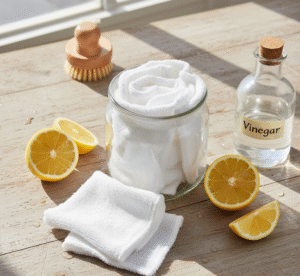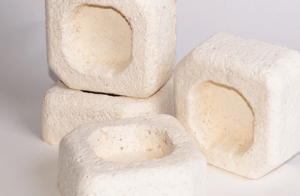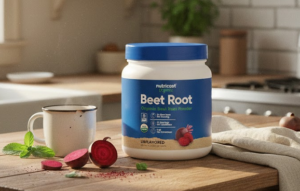The Dirty Truth About “Clean” Laundry
Do you ever pause and wonder what your laundry routine really costs – beyond utility bills? Most detergent jugs harbor more than freshness: microplastics, harsh chemicals, and plastic packaging that outlives your socks. When conventional detergent slides down the drain, its ingredients often linger in waterways. When you lug those plastic bottles home, you’re also shoving more weight (and carbon emissions) into the supply chain.
Enter eco-friendly laundry detergent sheets – lightweight, often plastic-free, and promising to clean just as well. But are they just clever marketing, or a real upgrade? Let’s unpack this together.

What Exactly Are Laundry Detergent Sheets? (And How They Work)
Laundry detergent sheets are thin, pre-measured pieces of cleaning formula. Think of them as a concentrated detergent mix pressed into a paper-thin strip that dissolves when wet. They carry the active stuff – surfactants, enzymes, fragrance (if any) – without much of the filler, water, or heavy packaging. Their job? Lift dirt, release stains, let water rinse them away.
Because they’re already portioned, there’s less chance of using too much (which means less residue, less waste). They work in cold or warm water; in many trials, sheets dissolved fully – even in cold cycles, as reported in Good Housekeeping’s lab tests.

The Hidden Environmental Cost of Traditional Detergents
You might think you’re doing good by recycling plastic jugs, but it’s never the whole story.
- Plastic waste: In the US alone, about one billion plastic laundry detergent jugs are tossed every year; only around 30 % get recycled according to this overview on Rise.
- Water footprint: Liquids are mostly water. Shipping water means shipping weight. More emissions. More fuel burnt, as highlighted by this Skipper analysis.
- Harmful ingredients: Things like phosphates, optical brighteners, synthetic surfactants may sneak into waterways, encourage algae blooms, or cause irritation. Some traditional detergents paste in more than you see on the label, warns Rise’s sustainability piece.
If you keep doing laundry the usual way, these issues accumulate. Ever stopped to think what your laundry does to soil, rivers, local wildlife?

Why Detergent Sheets Are Disrupting the Industry
They are lightweight (less shipping carbon), compact (smaller packaging carbon), often plastic-free (less waste), and pre-measured (fewer mistakes). Brands have begun using plant-based surfactants, removing unnecessary additives, avoiding phosphates and bleach, as noted in this industry breakdown by Rise.
Thanks to that, newer sheets are catching up in cleaning power – a few tested as nearly matching liquids on stain removal and whitening under regular loads, according to Good Housekeeping’s test results.

Benefits Beyond the Planet: Health, Convenience and Cost
- Skin & sensitivity: Fewer harsh chemicals often mean fewer irritations. Some sheets are fragrance-free or made for sensitive skin.
- Mess & measurement: No more spills of thick liquids, no sloshing bottles. You know exactly how much you use.
- Storage & travel ease: Flat boxes, light weight. You can fit more in tight spaces; take a sheet or two in your suitcase easily.
- Over time, cost per wash can drop. Yes, the upfront price may feel steeper, but when you stop over-using detergent or dealing with ruined fabric, those savings add up.

The Common Myths (And Truths) About Eco-Friendly Detergent Sheets
| Myth | Reality |
|---|---|
| “They can’t remove tough stains like greasy oil or red wine.” | Older formulations struggled, yes. But recent lab tests show many sheets now use enzymes that handle oil, sauce, coffee almost as well as liquids. Some still stumble on things like lipstick, grass stains, per Good Housekeeping’s evaluations. |
| “They leave residue or don’t dissolve fully in cold water.” | Most reputable brands tested do dissolve fully – even in cold water baths or in machines. But cheaper sheets or humid storage might affect performance, notes Good Housekeeping’s guide. |
| “They’re too expensive.” | Per sheet or per load can be higher than bulk liquid sometimes. But because dosing is fixed, you waste less. Over many washes, savings can show. Also, shipping and storage cost (liquid) often hidden. |
| “Plastic-free / biodegradable = magically perfect safety.” | Not quite. Some sheets contain PVA or similar materials which may have environmental concerns depending on biodegradability. Ingredients matter. Just “eco-friendly” on the box isn’t enough. Reddit threads and reviews flag this in this ongoing discussion. |
How to Choose the Right Detergent Sheet (Checklist)
Here are things to watch for when you buy:
- Ingredient transparency – plant-based surfactants, enzymes; avoid phosphates, synthetic dyes, harsh bleach.
- Packaging materials – cardboard, paper, compostable. Check whether any wrappers or parts are plastic.
- Certifications – labels like USDA Biobased, EPA Safer Choice, cruelty-free etc.
- Dissolution in cold water – if you often wash cold, a sheet that dissolves well in cold cycles is a must.
- Cost per load vs what you get – include extras: shipping, waste if sheets break, etc.
- Fragrance vs fragrance-free – if you have sensitive skin or allergies; sometimes stronger scent = more chemicals.

Real-World Results: People Who Switched & What Happened
Look, I’ve heard from people (Reddit threads, review sites) who swapped liquids and jugs for sheets:
- One person said their laundry room stopped being a plastic bottle graveyard, and carrying detergent up stairs stopped feeling like arm day, according to this Redditor’s experience.
- Another report: “More compact boxes, less mess. Whites came out brighter after a few washes.” But they also noted needing extra pre-treating for grill stains.
- Someone else saw minor skin tightness at first – switched to a milder or fragrance-free sheet and saw relief.
These stories suggest switching isn’t perfect, but it’s often better. And many feel they can’t go back.

The Future of Laundry: Will Liquid Detergents Disappear?
Not overnight. But trends are leaning toward lighter, simpler, safer. Plastic bans, consumer demand for cleaner ingredients, legislation on chemical additives – they all push the industry. Some big brands are already releasing sheet versions; some governments are pushing for reduced plastic and chemical use.
If you wait until “everyone’s doing it,” you may miss out on early options that are better quality. Being early means you get the benefit, but also help shape what comes next.

Action Step: Make Your Next Load Eco-Friendly Today
Here’s what you can do right now:
- Pick up a trial pack of eco-friendly laundry detergent sheets (small box, fragrance-free if unsure).
- Use cold water for washes – you’ll save energy. Test how well the sheet performs.
- Inspect your current detergent stash: are you over-using? Can you switch to sheets and still get your clothes clean?
- If you have tough stains, keep a stain spray/booster. Use sheets for regular loads; for drama stains, use extra tools.
- Store sheets properly (dry place), and read ingredient labels. Share your experience – blogs, forums – because your input helps brands get better.





